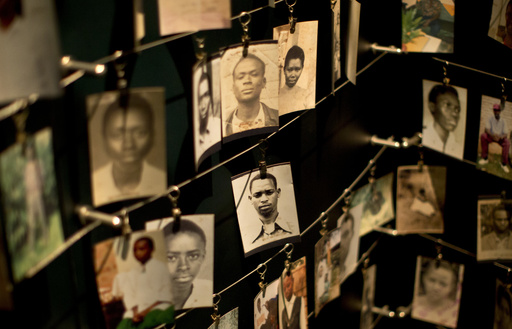
In a harrowing testimony, Angélique Uwamahoro recalled the brutal events of the 1994 Rwandan genocide, where armed men invaded a convent, resulting in the deaths of almost all the boys and men seeking refuge there. At just 13 years old during the genocide, Uwamahoro revealed that she had to navigate through the lifeless bodies in order to survive the horrific onslaught.
On a recent Tuesday, she shared her poignant story at a court in Paris, where a former physician is currently standing trial for his alleged involvement in the mass extermination of over 800,000 individuals belonging to the Tutsi minority and moderate Hutus who sought to protect them. Among those lost were some of Uwamahoro’s own relatives, and she expressed her determination to seek justice for her people, stating, “They died for who they were.”
Eugène Rwamucyo, the 65-year-old accused, faces serious charges including genocide, complicity in genocide, crimes against humanity, and conspiracy to commit these atrocities. Rwamucyo has maintained his innocence throughout the proceedings. Should the court find him guilty in this trial, which commenced earlier in the month and is expected to conclude next week, he could face a life sentence in prison.
Numerous survivors have traveled to Paris to provide eyewitness accounts of the brutal killings. Immaculée Mukampunga, another survivor, recounted the horrific attacks on Tutsi individuals in a seminary setting. She described the attackers’ gruesome methods, saying, “They attacked us, using the same method: first the machete on top of the head, then the throat, then the ankles.” In a desperate act of protection, Mukampunga concealed her young children, aged five and six, under the bodies of the dead. “I put blood on me, on the children too, so that they would believe we were dead,” she explained.
Antoine Ndorimana, who was just nine at the beginning of the genocide, also testified about the terrifying moments when he and his family were discovered while hiding in a church. “Those with machetes and clubs started hitting people. Some slit their ankles, others their throat… And then they stayed to see if anyone was still alive,” he recalled, noting that he was struck by a club but remained motionless to avoid detection.
The following day, Ndorimana witnessed men putting the dead and wounded into mass graves. He recounted a near-fatal experience in which he was almost buried alive in one of these graves but ultimately managed to escape. The prosecution has accused Rwamucyo of disseminating anti-Tutsi propaganda and overseeing the operations of burying victims in mass graves.
In his defense, Rwamucyo claimed that his involvement in the burials was solely for “hygiene-related” reasons and refuted the allegations that survivors were interred alive. This trial marks the seventh related to the genocide in which Rwandan nationals have been tried in Paris over the past decade.
In December, another physician, Sosthene Munyemana, was convicted of genocide, crimes against humanity, and participation in preparing for a genocide, receiving a 24-year prison sentence; he has since appealed the ruling.
